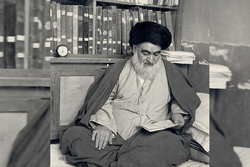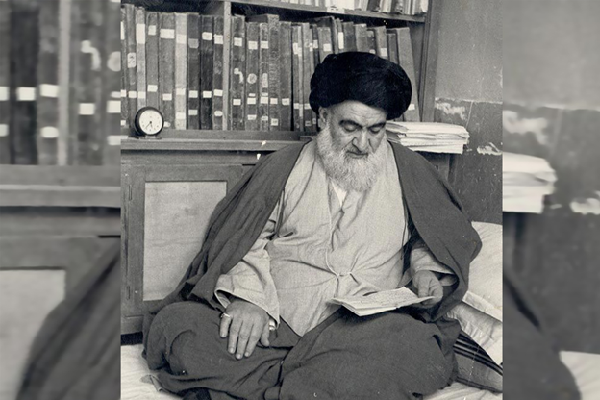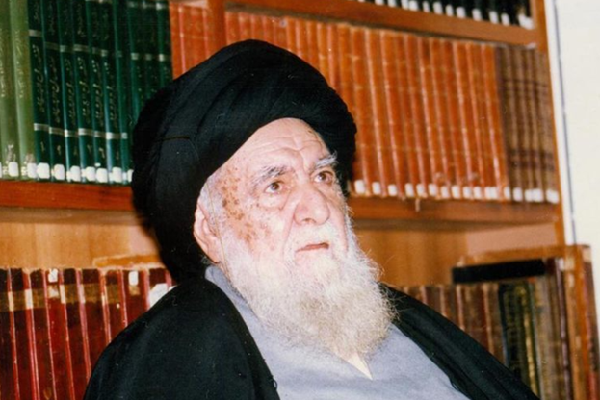Al-Bayan Quran Exegesis; Outcome of An Ijtihad-Based Approach


Al-Bayan Fi Tafsir al-Quran is among contemporary Quran exegeses that has been a focus of attention in scholarly circles since it was written. This is mainly because of Ayatollah Khoei’s prominent scholarly character and his use of Ijtihad-based method in writing the exegesis.
Ijtihad is a Fiqhi term referring to independent reasoning by an expert in Islamic law, or the thorough exertion of a jurist’s mental faculty in finding a solution to a Fiqhi question.
Al-Bayan Fi Tafsir al-Quran is in Arabic and includes some discussions about some Quranic sciences such as I’jaz (Quranic miracle) and Naskh (abrogation, the principle of abrogation of an older verse by a new verse in the Quran).
About the Author
Seyed Abolqassem Khoei (1899-1992) was a Shia source of emulation and author of the 23-volume book Mu’jam Rijal al-Hadith. Mu’jam is among the terms used in Hadith sciences and refers to a book in which Hadiths are collected based on the Sahabah (companions), cities and tribes.

Ayatollah Mirza Naeini and Ayatollah Mohaqeq Esfehani were two of his main teachers in Fiqh and Osul. Ayatollah Khoei, during his seventy years of teaching at seminaries, taught Kharij Fiqh, Kharij Osul and Quran interpretation.
He trained many scholars such as Seyed Mohammad Baqer Sadr, Mirza Javad Tabrizi, Seyed Ali Sistani, Hossein Vahid Khorasani, Seyed Musa Sadr and Mohammad Is’haq Fayaz.
Many of Ayatollah Khoei’s works have been collected in a 50-voluem book titled “Mosu’ah al-Imam al-Khoei”, 42 volumes of which feature Argumentative Fiqh, 6 volumes are on Osul Fihq and the 50th volume is Al-Bayan Fi Tafsir al-Quran.
Method of Tafsir
The scholarly status of Ayatollah Khoei and his skills and Ijtihad in Islamic sciences have helped him offer new views and solutions in discussing various issues.
In Al-Bayan, he uses sciences such as philology, and takes into account literary points, then offers his interpretational view or discusses others’ views relying on his scholarly capability.
Among the features of this exegesis is its comprehensive scholarly views. Given his great scholarly background, Ayatollah Khoei in this exegesis benefits from his knowledge in Hadith, Fiqh, theology, literature, history, etc.
He criticizes those interpreters who have discussed the verses of the Quran from only one aspect, stressing the need for a comprehensive approach to the Quran.
He says most interpreters have only considered one part of Quranic sciences and ignored other parts that could demonstrate the greatness of the Quran. For instance, he says, some interpreters have interpreted the Quran from the viewpoint of literary rules and role of words in sentence and some from philosophical aspects or from the viewpoint of modern sciences and all of them have imagined the Quran has been revealed with the same viewpoint that they have.
A glance at the literary, theological, interpretational and social discussions in Al-Bayan shows that Ayatollah Khoei has skillfully interpreted the verses and discussed their content from different aspects. This way, he has tried to avoid one-sidedness and to offer a comprehensive interpretation of the verses.
In Al-Bayan, he has tried to first of all offer his own interpretation of the verses and then offer a critique of others’ interpretations.
His sources in the interpretation are the Quran, Hadiths from Ahl-ul-Bayt (AS), intellect-based reviews and literary points. Given the author’s comprehensive approach to interpretation sources and his extensive use of logical reasoning in Al-Bayan Fi Tafsir al-Quran, we can say his method in writing this Quran interpretation is Ijtihad based.


